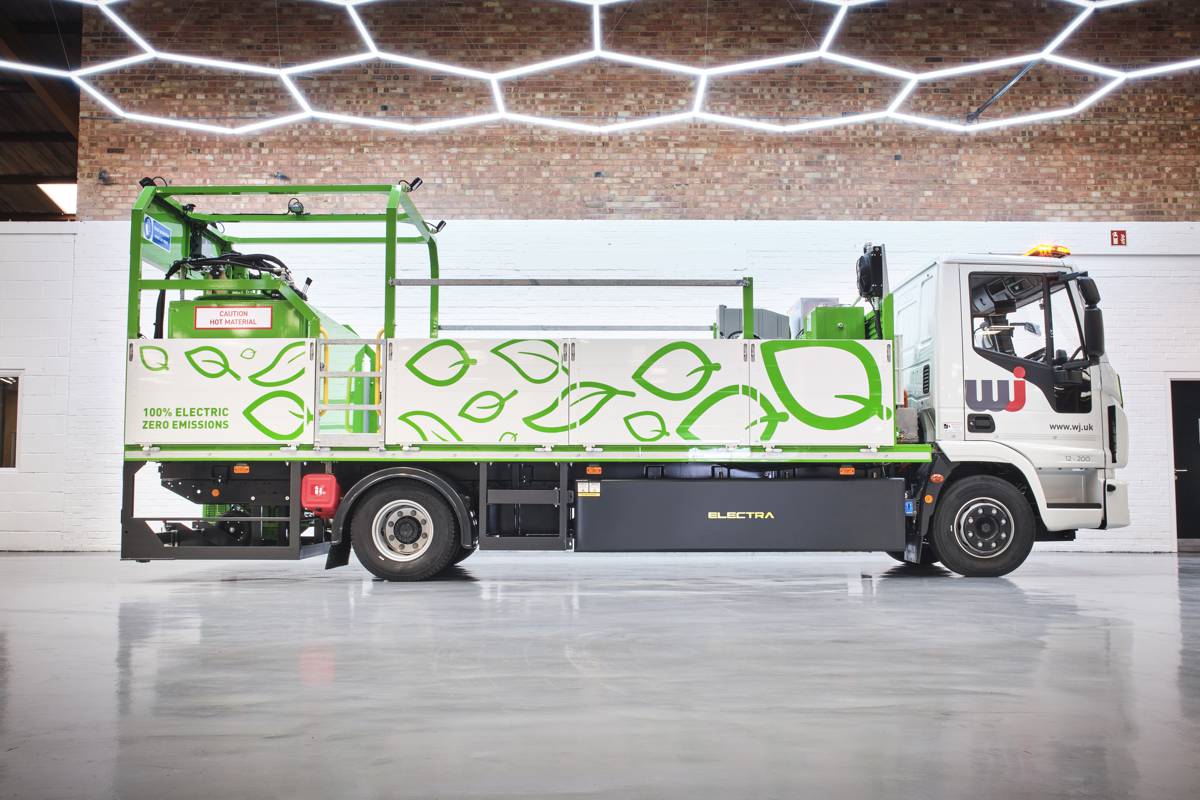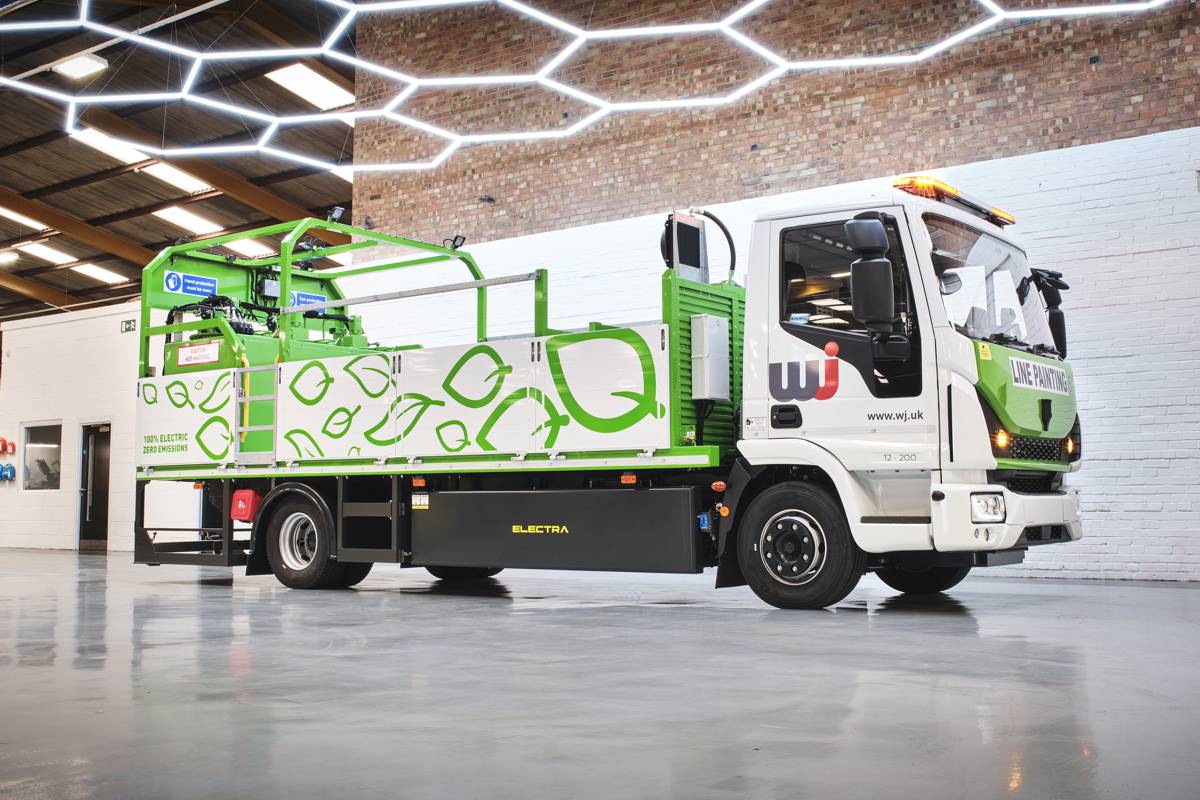WJ Group Rolls Out World-First Electric Thermoplastic Road Marking Truck
In a move set to shake up the road construction world, WJ Group has pulled the wraps off what it hails as the globe’s first fully electric thermoplastic road marking truck.
With sustainability now a key metric across infrastructure projects, this innovation could be a defining moment for the sector.
Launched with a splash at the LCRIG Innovation Festival, the electric truck isn’t just a nod to green ideals. It’s a full-throttle commitment to decarbonisation. Touted as the future of road marking, this vehicle is purpose-built to complete an entire shift on a single electric charge. Priced around the half-million mark, it’s more than just an investment in technology – it’s a bold stake in a cleaner future.
Leading the Charge on Carbon Reduction
WJ Group has long been recognised as a forward-thinking player in the UK highways industry. But this latest venture raises the bar. The truck is a key milestone on the company’s mission to reach net zero for scope 1 and 2 emissions by 2032 – a target that’s backed by officially approved Science Based Targets.
WJ Group CEO Wayne Johnston didn’t mince words: “By launching the world’s first fully electric thermoplastic road marking truck, we are offering a completely new and innovative solution to help our industry partners keep sustainability at the heart of their decisions. Combined with our thermoplastic road marking products using bio-based binders, councils can significantly reduce their emissions in line with their own net zero timelines.”
And with local authorities now under mounting pressure to deliver on their climate commitments, having partners that help tick the sustainability boxes is crucial.
Innovation From the Ground Up
This isn’t some off-the-shelf solution. WJ Group’s new EV truck was developed entirely in-house, using the deep expertise of the company’s vehicle and plant engineering teams. The build process was spread across its facilities in Elland and Newcastle-under-Lyme.
The foundation is a custom-built chassis developed in partnership with Electra Commercial Vehicles, specialists in electric vehicle conversions. Based on a glider chassis, the frame was then reinforced and reworked by WJ’s engineers using lightweight aluminium to trim the fat and maximise energy efficiency.
To put it plainly, WJ Group didn’t just swap out a diesel engine. They reimagined the entire vehicle architecture to be fit-for-purpose in a new era of roadworks.

Clean Heat for Clean Streets
One of the biggest engineering feats in this build was replacing the traditional gas burner with a custom-developed electric heating system. That’s no mean feat – thermoplastic materials need to be kept at precise temperatures to apply safely and correctly.
To keep the material toasty even while it’s being laid down, WJ also unveiled new electric applicator prams. These innovations ensure thermal consistency throughout the road marking process, right up until the last stripe.
The truck is still in the final design and testing phase, with implementation on real-world roads just around the corner.
Aligning with Industry-Wide Goals
There’s more to this story than engineering. WJ Group’s electric truck slots perfectly into wider sector ambitions. As the highways industry pivots towards smarter, more sustainable operations, low-carbon technologies are becoming non-negotiable.
From the Department for Transport’s Decarbonising Transport plan to the National Infrastructure Strategy, the message is clear: sustainability must be embedded from planning to execution.
WJ’s move echoes those priorities. The new truck will enable its clients to lower emissions without compromising on performance or reliability. It’s a win-win.
Towards a Fully Electric Fleet
According to Johnston, this truck isn’t a one-off stunt. “Our EV Truck is the first step towards a fully electric fleet – eliminating the need for fossil fuel powered equipment. I’m proud that we are leading the industry towards a cleaner, brighter tomorrow.”
That vision is grounded in tangible action. By investing early in scalable solutions, WJ is laying the groundwork for broader adoption across its operations. The thermoplastic truck is just the first spark.
More electric conversions are likely on the horizon – with other high-emission assets such as line removers, sweepers, and heavy-duty support vehicles next in line.

Bio-Based Binders and Beyond
The vehicle itself is only part of the carbon-cutting puzzle. WJ Group has also been investing heavily in greener materials.
Their low carbon thermoplastic uses bio-based binders instead of fossil-derived resins. When installed using a zero-emission truck and electric applicators, the entire road marking process becomes substantially more eco-friendly.
That makes WJ one of the few UK providers offering a truly sustainable end-to-end solution. And in a market where green credentials can make or break contract awards, that gives them a serious edge.
Shaping the Future of Highways
The industry is evolving, and quickly. Demand is growing for sustainable transport networks, and government funding is increasingly tied to environmental performance.
With public and private sector clients alike looking to decarbonise, WJ’s innovation is well-timed. It doesn’t just tick the ESG boxes. It redefines what a sustainable supply chain in infrastructure should look like.
When sustainability meets smart engineering, good things happen. And if this truck is anything to go by, WJ Group isn’t slowing down any time soon.
Driving the Industry Forward
As infrastructure leaders scramble to meet net zero deadlines, WJ Group has demonstrated that meaningful change doesn’t need to wait for tomorrow.
With the world’s first fully electric thermoplastic road marking truck, they’ve shifted from talking the talk to walking the (freshly marked) walk. It’s a powerful example of how innovation, when rooted in purpose, can drive real change in one of the world’s oldest industries.




























